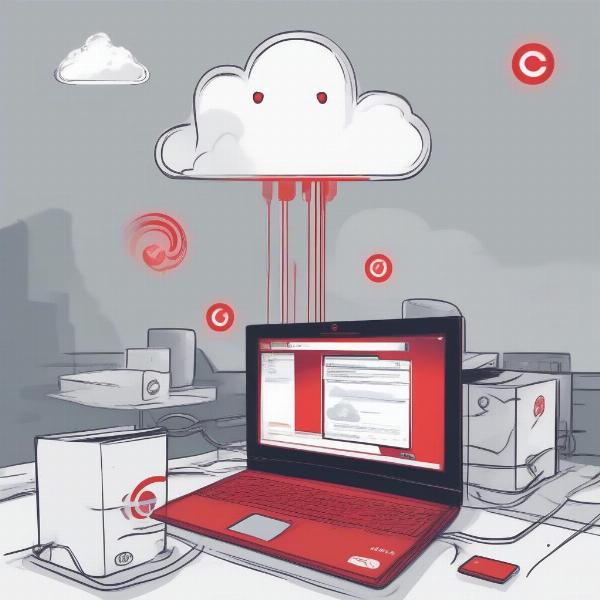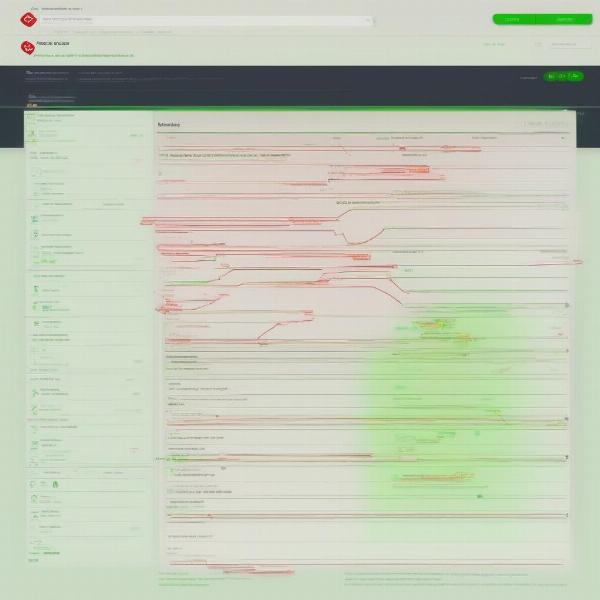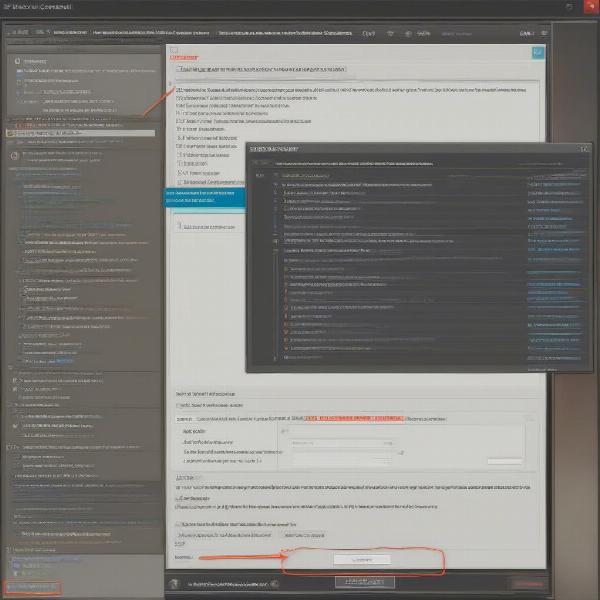Experiencing the frustrating “League of Legends can’t connect to game” error is a common issue that plagues many summoners. At SupremeDuelist.blog, we understand how disrupting this can be, especially during crucial ranked matches or fun gaming sessions with friends. This article will delve into the potential reasons behind this connectivity problem, and offer a comprehensive set of solutions to get you back into the rift.
We’ll explore everything from basic network checks to advanced troubleshooting techniques, ensuring that players of all skill levels can understand and resolve the issue. Whether it’s a problem with your internet connection, game client, or even server-side issues, this guide will equip you with the knowledge needed to diagnose and tackle the “League of Legends can’t connect to game” error effectively.
Why Can’t I Connect to My League of Legends Game?
Several factors can prevent you from connecting to a League of Legends match. Understanding these causes is the first step in finding a solution. Let’s explore the most common culprits, which often involve network configurations, client problems, and server status.
Network Issues
The most frequent cause of connection problems lies within your home network. Things like a weak WiFi signal, congested bandwidth, or incorrect DNS settings can all play a part. A stable internet connection with low latency is crucial for online gaming, so any disruptions here can easily lead to connection failures.  Troubleshooting Network Problems Causing Connection Issues
Troubleshooting Network Problems Causing Connection Issues
- Unstable WiFi: If your WiFi signal is weak or fluctuating, it can cause intermittent connection drops.
- Congested Bandwidth: When multiple devices are using your internet connection at the same time, it can slow down your connection and impact gaming performance.
- Incorrect DNS settings: DNS (Domain Name System) settings that are not optimized can lead to connection errors.
Game Client Problems
Sometimes, the issue stems from the League of Legends client itself. Corrupted files, outdated versions, or conflicts with other software can prevent the game from connecting to servers. It’s crucial to make sure your game client is healthy and up-to-date.
- Outdated game client: If your game client is not updated to the latest version, it might not be compatible with the game servers.
- Corrupted game files: Damaged or corrupted game files can interfere with the connection process.
- Software conflicts: Sometimes, other software running on your computer can interfere with League of Legends.
Server-Side Problems
While less frequent, the League of Legends servers themselves can sometimes be the cause of connection problems. This could stem from scheduled maintenance, unexpected outages, or regional server issues. Checking the server status is crucial in these cases.  Checking League of Legends Server Status for Connection Errors
Checking League of Legends Server Status for Connection Errors
- Server maintenance: League of Legends servers often undergo scheduled maintenance, during which you might not be able to connect to the game.
- Outages: Unexpected server outages can occur, impacting the game’s availability.
- Regional issues: Specific server regions might experience connection problems, impacting players in those regions.
Troubleshooting “League of Legends Can’t Connect to Game” Errors
Now that we have identified the potential culprits, let’s dive into the solutions. Below is a detailed guide covering different troubleshooting steps you can take to fix your connection problems. We’ll start with the simpler solutions and move to more advanced ones.
Basic Network Checks
Before delving into complex solutions, let’s make sure your basic network settings are correct. These simple checks can often resolve common connectivity issues.
- Restart your modem and router: Power-cycling your modem and router can often resolve temporary connection problems. Turn them off, wait for a minute, then turn them back on, this can reset your internet connection.
- Check your WiFi signal: Make sure you are connected to your WiFi network and have a strong signal. If possible, try moving closer to your router. Alternatively, switch to an Ethernet connection for a more stable link.
- Test your internet speed: Use a website like Speedtest.net to check if your internet speed is meeting the game’s requirements, look for high latency/ping. Low upload and download speed, or high ping, will cause connection issues.
- Disable VPN and proxies: VPNs and proxies can sometimes cause connection issues, so disable them temporarily to see if that resolves the problem.
Client-Side Solutions
If your network is okay, let’s examine potential problems with the League of Legends client. These solutions involve making sure the game files are healthy, and the game is up to date.
- Update League of Legends: Ensure that your game client is running the latest version. Check for available updates in the game launcher.
- Run as administrator: Run the League of Legends client as an administrator. This gives the game necessary permissions to run correctly, this can help if the game has issues writing or accessing data on your computer.
- Repair game files: Use the game launcher’s repair tool to scan for and fix damaged game files, it will replace or download damaged or missing files.
- Reinstall League of Legends: If all else fails, uninstall and reinstall the game to ensure no residual corrupt files exist, and you are running with a fresh copy of the game.
Advanced Network Solutions
If the basic network checks and client-side fixes don’t work, try these more advanced network solutions. These steps include more technical changes to network configurations.
- Flush DNS Cache: Flushing your DNS cache can resolve DNS related problems that affect your connection to the League of Legends servers. In Windows, open Command Prompt as an administrator and enter “ipconfig /flushdns”. On Mac or Linux, open a Terminal and use specific flush DNS commands for your operating system.
- Change DNS Servers: Using third-party DNS servers like Google Public DNS (8.8.8.8 and 8.8.4.4) can sometimes improve connection stability. Change your DNS settings in your network adapter settings.
- Open necessary ports: Ensure that the required ports for League of Legends are open on your firewall. Refer to the official League of Legends support website for the specific ports that need to be open.
- Check your firewall and antivirus: Your firewall or antivirus software might be blocking the game. Add exceptions for League of Legends to your firewall and antivirus.
 Adding Firewall Exceptions for League of Legends Connection
Adding Firewall Exceptions for League of Legends Connection
Server Status Check
Finally, before assuming the problem lies with your network or client, it’s important to check the server status. It’s always possible that the issue is beyond your control.
- Check the official League of Legends server status page: Visit the official League of Legends website or their support Twitter to check for any server outages or maintenance announcements.
- Monitor social media: Check player forums and social media channels for any reports of server issues, if there are widespread complaints, then it’s likely server side.
Frequently Asked Questions
Here are some common questions users frequently ask about connectivity problems in League of Legends.
Why does League of Legends keep disconnecting?
League of Legends might disconnect due to several reasons, including unstable internet, outdated game versions, server problems, or a misconfigured firewall. Identifying the exact cause requires following the troubleshooting steps provided in this article.
Can my router cause League of Legends to disconnect?
Yes, an outdated or poorly configured router, along with a congested WiFi signal, can result in dropped connections in League of Legends. Restarting the router or switching to a wired connection is advisable.
What are common “League of Legends can’t connect to game” error codes?
While specific error codes can vary, common codes include “firewall issues,” and “connection timeouts” and “session expired”. They often indicate connectivity problems which require troubleshooting your network, client, or checking the server status.
How do I check if the League of Legends server is down?
You can check if the League of Legends server is down by visiting the official League of Legends server status page, or by checking their support page or Twitter for any announcements regarding outages or scheduled maintenance.
Will changing my DNS settings improve League of Legends connection?
Sometimes changing your DNS settings can indeed improve your connection. It’s worth trying Google Public DNS (8.8.8.8 and 8.8.4.4) to see if it makes a difference.
When should I contact League of Legends support?
If you’ve tried all troubleshooting steps and the problem persists, then contact League of Legends support. They might be able to offer more tailored solutions.
Expert Insight on Game Connectivity
“Maintaining a stable and optimized network environment is crucial for online gaming,” says Elias Thorne, a networking expert and avid gamer. “Regularly updating your network firmware, choosing the right DNS server, and understanding your own bandwidth usage can drastically improve the overall gaming experience.”
“Game clients are often finicky, a lot of problems that occur are due to how the game is installed on your computer and how it interacts with other programs. Running as an administrator and ensuring all your software is updated will be a good place to start when diagnosing connection issues” – added Jessica Li, a lead software engineer at a major gaming company.
Conclusion
Dealing with “League of Legends can’t connect to game” errors can be frustrating, but with the correct approach and troubleshooting steps, it’s often resolvable. Whether the issue stems from your network, game client, or even server-side problems, understanding the potential causes is key to finding a quick and efficient solution. This guide from SupremeDuelist.blog provides all the information and solutions you need to get back to the Summoner’s Rift, ensuring that you can enjoy uninterrupted League of Legends gameplay. Remember to consistently monitor your system and stay up-to-date with the latest patches and updates to prevent issues in the future. Happy gaming!
Leave a Reply